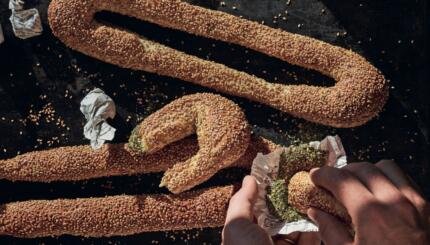Some big issues for orthodox feminism have come up in the news lately. Did you see that women will soon be allowed to monitor kashrut in institutional kitchens in Israel? JOFA Board member Carol Newman wonders how new this actually is.
I wonder who the rabbis thought was in the kitchen all these years. I have been married for over fifty years and have made more meals than I could possibly count. I’ve cooked for my family, for extended family, for guests, and even for organizations that asked me to host events. No one ever came into my kitchen asking to see the mashgiach.
So what is this all about? My brother-in-law, Marcel Lindenbaum, says the rabbis are afraid of change and therefore what we are seeing in so many instances is a rabbinate that wants to keep things exactly as they are. I maintain that change has already happened. The rabbis simply fear change that has to do with empowering women in Judaism.
In her new book, “The Kind Mama,” Alicia Silverstone explains her refusal to give her son a brit milah. Her rationale suggests a lack of God’s omnipotence: “my thinking was: If little boys were supposed to have their penises ‘fixed,’ did that mean we were saying that God made the body imperfect?”
JOFA Board member Belda Lindenbaum responds with a popular midrash.
I believe that we were not born “perfect” for a reason, sometimes difficult to understand. I do believe that there are instances, and this is one of them, where we are asked to complete the work of “perfecting.” It began with Adam naming the animals and culminates in the act of procreation where men and women create new life. Bread, a staple of life, is given to us in the form of wheat, but it is humans who harvest, grind, knead, and bake the wheat flour to make the bread. We are partners and perfectors in the act of creation.
Sounds like there’s more than one way to be a “kind mama.”
The Jewish world is full of debates. Get the latest in MyJewishLearning’s weekly blogs newsletter.



